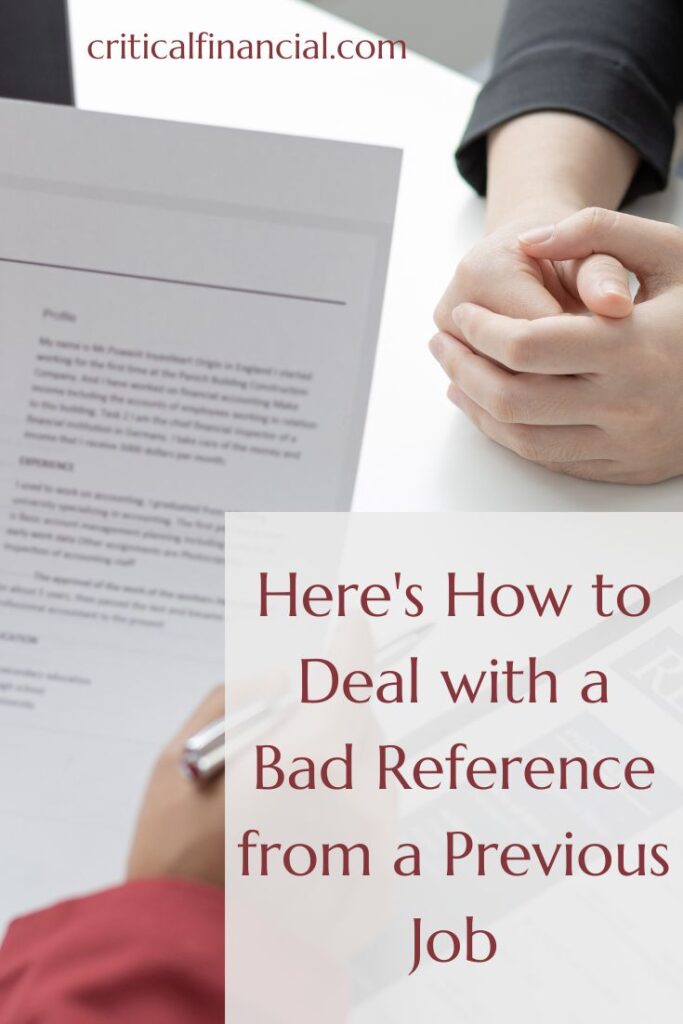
An excellent job reference can open doors when applying for a new job. Unfortunately, the opposite, having a bad reference from a previous job, can close doors faster than a positive reference opens them. After all, no one wants to hire a troublemaker. If you’re in the unfortunate latter position, here’s how to deal with a bad reference from a previous job.
Steps to Avoid a Bad Reference
Avoiding a bad reference is easier than mitigating the damage from one. Take the following steps:
Don’t Ask If You’re on Rocky Terms
If you’re leaving your job because of a problematic relationship with your supervisor or because you acted inappropriately at work, don’t ask your supervisor for a reference. Instead, ask others that you work with who can speak highly of your skills.
Don’t Ask If They Don’t Know You’re Job Hunting
Often, employees search for a job before leaving their current job. However, to avoid jeopardizing their current position, they don’t tell their employer they are job searching. If this is the case for you, don’t ask your current boss for a reference. Instead, ask a supervisor from a previous job. In addition, seek references from family, friends, and others you have connections with outside of work.
Ask and Judge Their Reaction
If you have an excellent or manageable relationship with your boss, ask if they can serve as a reference and watch their reaction. Some people will say no to the request because they know they won’t write a good reference. Others will show by facial expression or body language that they are uncomfortable being your reference. If either situation is true, don’t use them as your reference.
How to Deal with a Bad Reference from a Previous Job
If, despite your best efforts, you end up with a bad reference from a previous job, there are steps you can take to mitigate its effect.
Counteract with a Positive Reference
A lousy reference doesn’t reflect well on you. However, you can counter that bad reference with other, better, references. If one reference is terrible but the others are glowing, the interviewer may not weigh the bad reference as heavily as if your other references also weren’t good.
Explain the Situation without Blaming Your Employer

If the interviewer mentions your bad reference from a previous job, don’t make excuses or blame the employer. Doing either of these things makes you look worse. Instead, acknowledge the lousy reference and take responsibility for your behavior that caused the bad reference. This will make you look better than blaming your boss for the problems.
Final Thoughts
Trying to secure a new position when you have a bad reference from a previous job can seem impossible. However, you can take steps to avoid having a bad reference. And if you do have one, you can take steps to counteract it. You won’t be the first person who has had a bad reference. Remember that the vast majority go on to find their next job, bad references and all. You will, too.
Read More
3 Reasons Why There’s No Such Thing as a Stable Job
Why You Should Apply for New Jobs Sometimes
5 Signs You Can Confidently Quit Your Job
Melissa is a writer and virtual assistant. She earned her Master’s from Southern Illinois University, and her Bachelor’s in English from the University of Michigan. When she’s not working, you can find her homeschooling her kids, reading a good book, or cooking. She resides in New York where she loves the natural beauty of the area.

